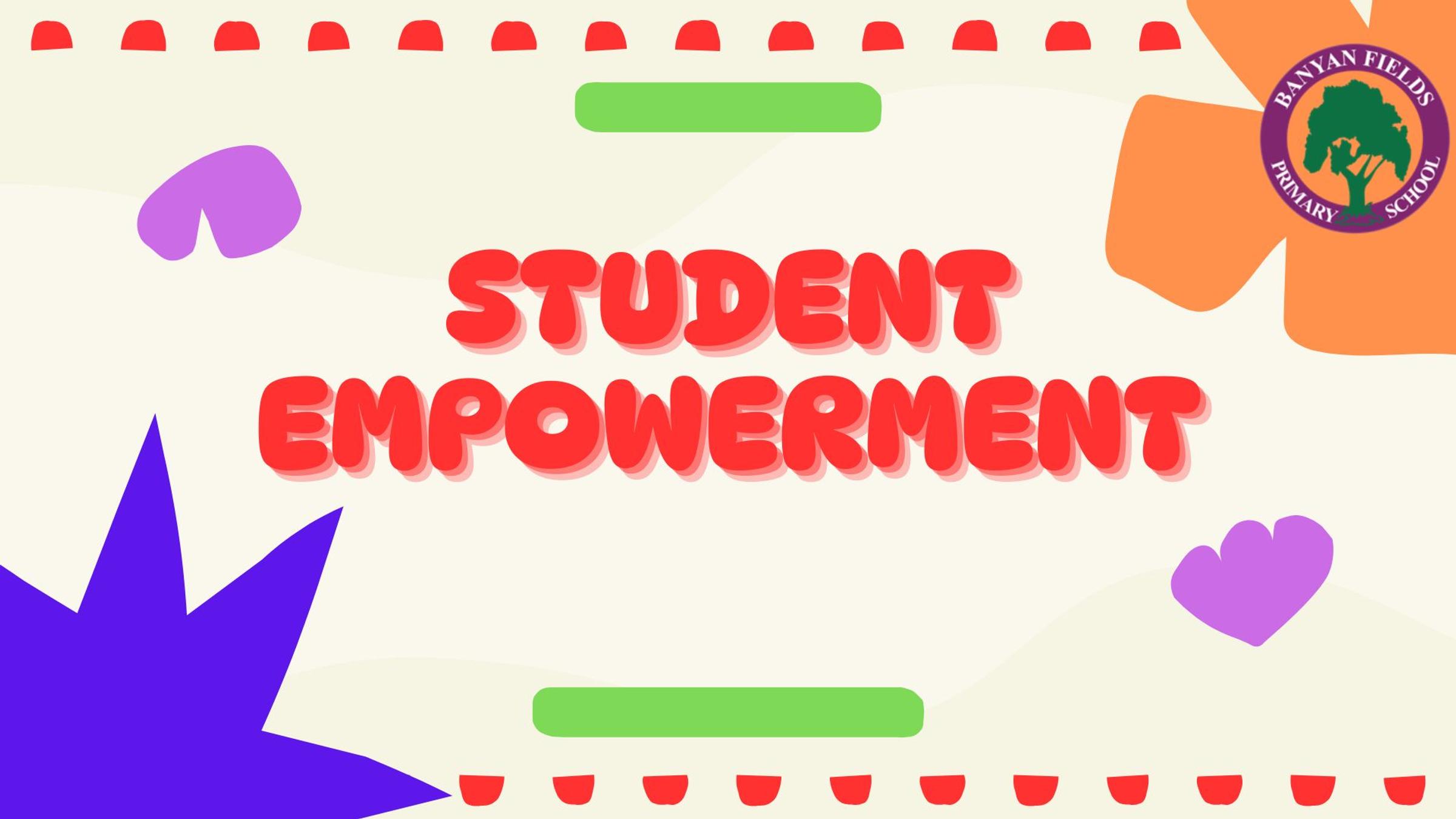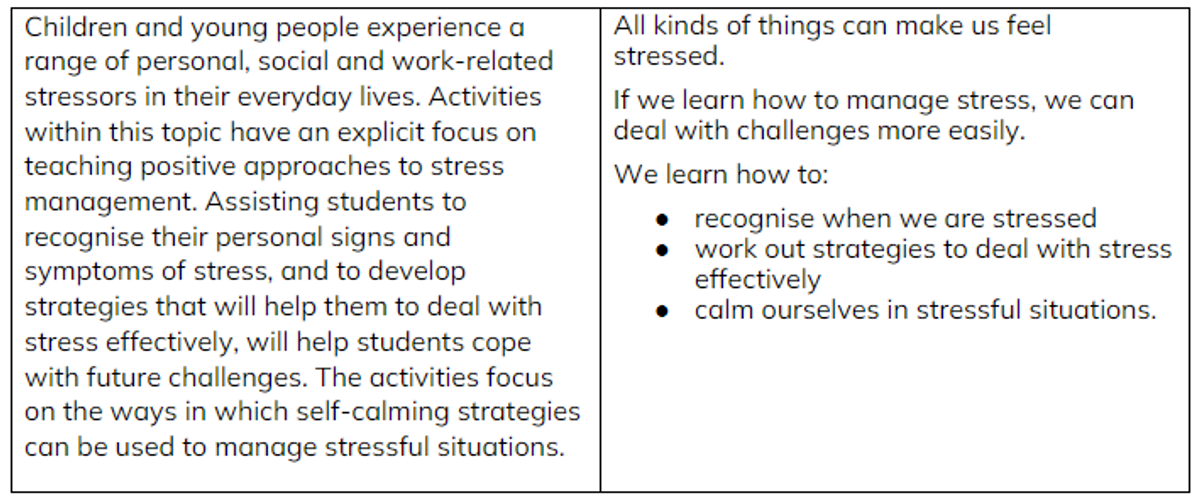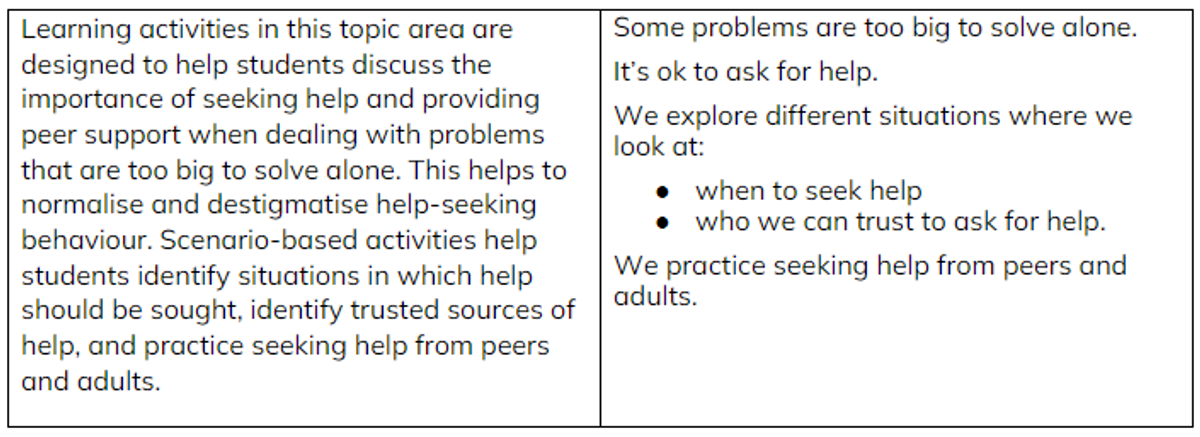Student Empowerment

What is Student Voice?
Student voice acknowledges that students have unique perspectives on learning, teaching, and schooling, and should have the opportunity to actively shape their own education.
Student voice involves students actively participating in their schools, communities and the education system, contributing to decision making processes and collectively influencing outcomes by putting forward their views, concerns and ideas.
Respectful Relationships
The next of the 8 Pillars is Problem Solving.
The fifth Pillar is Stress Management.
The sixth Pillar is Help-Seeking.
Myth or Fact?
Myth: Education cannot solve the problem of family violence
Fact: Respectful Relationships isn’t intended to be the whole solution to addressing family violence, but it is an important primary prevention initiative.
Just like other major social and health issues such as smoking and road tolls, evidence shows that gender-based violence can be prevented by working with the whole population, and in this case, all schools, to address the attitudes, beliefs and knowledge that supports the prevention of violence.
Studies show that school-based violence prevention and Respectful Relationship initiatives can produce lasting changes in attitudes and behaviours.
Respectful Relationships Education in Schools (RREiS) was trialled across 19 schools, reaching 1,700 teachers and 4,000 students. The trial found that the initiative had a positive effect on students’ attitudes, knowledge and skills, as well as, school policies, culture and ethos.
Myth: The resources are seeking to make children gay, non-binary or trans
Fact: This is not true. Longstanding evidence is clear that children develop their understanding of gender from a young age, and that by the age of 4 they largely adhere to gender norms.
The point of primary prevention is that it prevents problems before they emerge. Respectful Relationships as primary prevention seeks to ensure that children and young people are not forming the attitudes that evidence shows are the core drivers of family violence.
This is developmentally appropriate, and this initiative is not seeking to make children gay, non-binary or trans.
Myth: It is inappropriate to teach young children about consent
Fact: For younger children consent education includes an age-appropriate focus on what it can look or sound like to ask for permission or consent, to refuse permission or consent and to understand that consent can’t be obtained by pressuring people to do something they don’t want to do. For example, giving or denying permission to borrow a pencil.
Consent education also includes learning activities that support prevention of child sexual abuse, by teaching about bodily autonomy, body boundaries, the difference between ‘safe’ and ‘unsafe’ secrets and the importance of seeking help from trusted adults if children’s ‘early warning signals’ are sending a message that they might not be safe.
Research shows significant increases in knowledge and improved self-protective behaviours occurs when students are taught their rights to be safe from abuse and their right to say no or to tell, even when someone in authority over them abuses them.
Myth: The Resilience, Rights and Respectful Relationships teaching and learning materials are not age appropriate
Fact: The Resilience, Rights and Respectful Relationships teaching and learning materials were developed by leading education experts, who tailored the materials to each year level from Foundation to year 12 and made sure all information is age-appropriate and grounded in evidence.
Rebecca McCorkindale
Student Empowerment Leader



